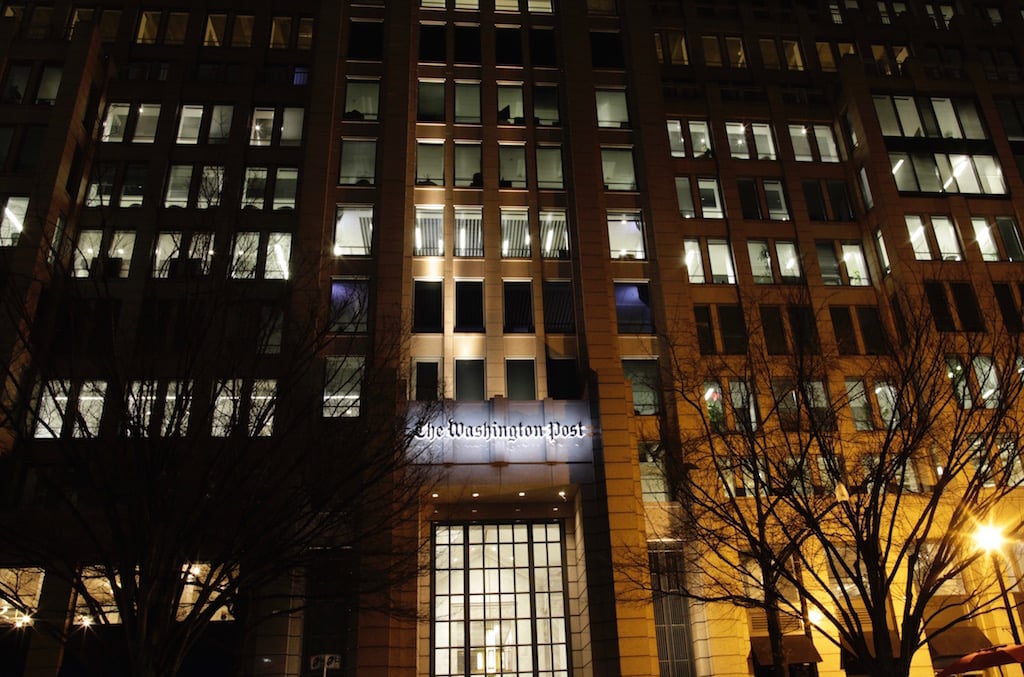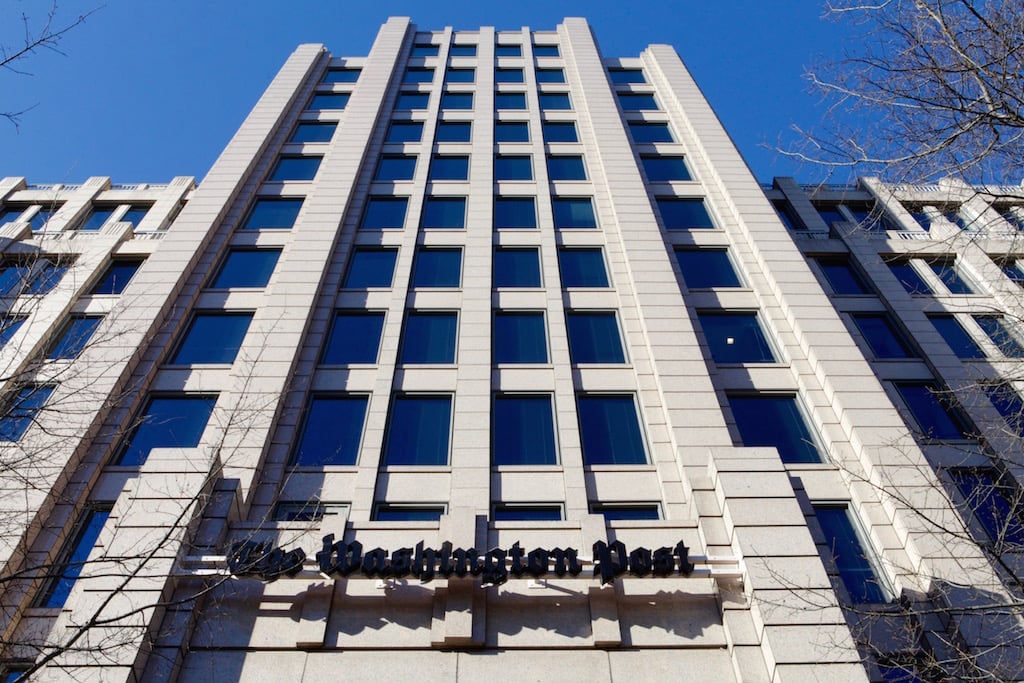About Coronavirus 2020
Washingtonian is keeping you up to date on the coronavirus around DC.
Most Washington Post journalists spent Wednesday working at home, the first day after the news organization told most employees to work remotely in an attempt to slow the spread of the novel coronavirus.
So…how can you do a reporting or editing job under these circumstances? “The coronavirus story is one that is likely to command our attention for many months,” Post Managing Editor Tracy Grant wrote in a memo to employees Wednesday. The memo laid down guidelines that apply to all Post journalists in the US and abroad. “Our goal is to cover the story in a way that is meaningful for our readers while protecting the health of our journalists and those who come in contact with our journalists,” Grant wrote.
Among the guidelines: “Conduct interviews via phone when possible,” Grant wrote. “In person interviews should be conducted at a distance of three to six feet.”
The Post has a stock of protective equipment like masks and gloves and expects to obtain more, Grant wrote. For the time being, the news org does not recommend journalists use masks when they’re out reporting. Anyone who feels they need protective gear for a story needs to clear it with an editor first. And no one is allowed to don a special protective suit without clearing it through Executive Editor Martin Baron, Grant wrote: ” On a purely practical level, these suits tend to give a sense of false security and the potential for becoming exposed because of improperly taking off a suit is high.”
Anyone who reports from an outbreak zone may be prohibited from coming to the office, traveling, or going on any other reporting trips for 14 days, the memo said.
Other parts of the memo encourage basic common-sense measures: Wash your hands. Avoid touching your face (correspondents in China found wearing gloves helped, Grant noted). And you shouldn’t shake hands.
Another memo from HR VP Wayne Connell addressed how the Post can keep up its hiring during this crisis. Job interviews should take place over phone or video–not optimal, Connell acknowledged, but “but these circumstances are not ideal.” Connell suggested testing prospective employees on their abilities, whether they’re applying for editorial, coding, sales, or other jobs, because “there is no substitute for watching a candidate demonstrate his or her competence in real time.” HR can help construct tests, he wrote.
Above all, keep extending employment offers. The Post plans to pay new employees from their hire date, not their start date, even if it’s not yet clear how they can get to work. It’s not only unfair to delay new employees’ pay and benefits; doing so could cause the Post to lose out on good candidates. “Keep the trains running,” Connell wrote.
Here’s Grant’s memo:
Guidelines for covering coronavirus
The coronavirus story is one that is likely to command our attention for many months and will require the work of multiple teams of reporters, photographers and videographers. Our goal is to cover the story in a way that is meaningful for our readers while protecting the health of our journalists and those who come in contact with our journalists. We will ask anyone who is covering the coronavirus story, either abroad or domestically, to read and adhere to these guidelines. When in doubt, we want you to talk to your editors. These conversations should happen before any potentially dangerous exposure. In the event of exposure, you must notify your editor as soon as possible so that we can take the necessary steps to protect you and those around you. We are instituting these policies as a safeguard for you and for others. It is vital for you to read, understand and follow them. The bottom line is that our directive to you is to err on the side of caution, even if it limits our newsgathering ability.
Safety Protocols
• We have safety gear (masks and gloves) and are in the process of obtaining more. We will – out of an abundance of caution – make sure that journalists operating in coronavirus zones have them. Our correspondents in China wound up wearing masks because of local rules; they couldn’t ride in a taxi without them. We may get to that point, but, at present, we are following CDC guidelines and are NOT recommending widespread use of masks.
• If you feel that a story puts you in a situation where you might need to wear protective gear – a hospital, senior center or other place where you might come into contact with infected people – you must FIRST discuss that reporting trip with your editor, who in turn will clear it with a department head or more senior editor.
• Our policy is that you should not wear special protective suits. Any exception to this policy would have to be approved in advance by Marty, following careful discussion and risk assessment. On a purely practical level, these suits tend to give a sense of false security and the potential for becoming exposed because of improperly taking off a suit is high.
• Exercise good basic hygiene.
- Avoid handshakes or other physical contact
- Avoid touching your face (China correspondents found wearing gloves served as a good reminder to avoid touching your face.
- Conduct interviews via phone when possible. In person interviews should be conducted at a distance of three to six feet.
- Wash your hands regularly with warm water and soap. This is particularly important after touching objects in public spaces such as handrails, tabletops etc.
Avoid animals when possible.If you are reporting from an active outbreak zone, you may be required to not come into the office or travel on other reporting trips for 14 days. We will try to follow CDC guidelines on quarantines, but be aware that this is a moving target. If at any point, you begin to feel ill with fever or respiratory difficulties, contact your editor, department head or me immediately.
Tracy




















